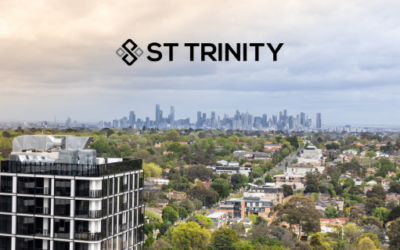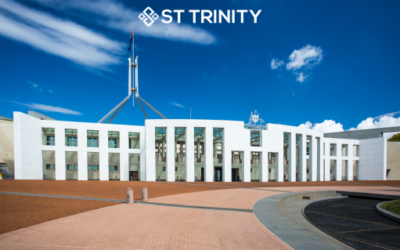The NSW budget 2023-24 heralds a wave of changes poised to reshape the property industry in New South Wales. With significant funding allocated to essential services and infrastructure, along with the ongoing dynamics of the real estate market, this budget’s impact on property supply, demand, and prices is nothing short of transformative.
Table of Contents
Breaking Down the $2.2 Billion Housing and Infrastructure Plan
New South Wales Treasurer, Daniel Mookhey, has unveiled the NSW budget 2023-24, featuring a pivotal $2.2 billion Housing and Infrastructure plan to combat the state’s housing crisis.
- $1.5 Billion for Infrastructure: This allocation aims to fund roads, parks, hospitals, and schools to support the construction of new homes across Sydney, the Lower Hunter, Central Coast, and the Illawarra. These infrastructure enhancements are poised to enhance the appeal of these regions for prospective property buyers.
- $400 Million for Housing Infrastructure Fund: Sourced from funds remaining after the completion of Restart NSW projects, this fund is pivotal for increasing housing supply throughout NSW. This is a crucial element in addressing the ongoing housing crisis.
- $300 Million for Landcom: Landcom, a publicly-owned developer, is set to receive funding to expedite the construction of thousands of new homes. Notably, 30% of these homes will be allocated for affordable housing, targeting infill sites and government-owned land for development. This measure aims to cater to a diverse range of potential property buyers and renters.
As Treasurer Mookhey aptly puts it, “You can’t get to the keys to your house if you can’t get the road to your driveway.” This underscores the significance of comprehensive infrastructure development in alleviating the housing crisis.

Image: New South Wales Treasurer Daniel Mookhey (Bianca De Marchi/AAP PHOTOS)
Impact on Property Supply and Demand
The $2.2 billion Housing and Infrastructure Plan represents a substantial stride toward addressing housing affordability and availability. While this plan includes funding for infrastructure to bolster new home construction, it is anticipated that the heightened demand driven by increased salaries and improved amenities could partially counterbalance the effect on supply, potentially sustaining competitive dynamics in the property market.
Impact on Property Prices
New South Wales’ property market is already experiencing robust growth, and the budget’s emphasis on infrastructure development is likely to sustain this upward trend. Augmented investment in housing-related infrastructure, encompassing roads, parks, hospitals, and schools, is poised to stimulate demand for properties in areas benefitting from improved amenities.
In addition to the $2.2 billion Housing and Infrastructure plan, several other budget measures are poised to impact the property market. Here are the key winners and losers in this year’s NSW budget.
Winners in the NSW Budget 2023-24
The beneficiaries of this budget are notably diverse, with some key groups standing out:
- Regional Housing: The state government’s launch of a $60 million Build to Rent trial for new construction projects in the South Coast and Northern Rivers is aimed at enhancing housing affordability and supporting regional areas. Additionally, there will be $70 million in debt financing allocated to expedite the construction of social, affordable, and private homes, primarily focusing on regional NSW.
- Teachers and Healthcare Workers: Teachers are poised to become the highest-paid workers in Australia with an impressive 12% pay raise. According to Treasurer Daniel Mookhey, “The entry-level pay will now be $85,000 for teachers compared to $75,791 previously.” Healthcare workers will also reap rewards, with a 4.5% pay increase and funding for additional staff. This substantial pay increase could influence their property decisions, potentially leading to more professionals upgrading their homes or entering the property market.
- Parents: Parents of young children are set to receive fee relief in long day care and preschools, which could alleviate financial burdens. The budget also maintains fee relief of $4,220 per year for parents and carers of three to five-year-olds in community and mobile preschools.
- Hospital Patients: The commitment to improving healthcare infrastructure, with more beds and upgrades, could influence property demand in areas neighbouring these enhanced facilities.
- Western Sydney Drivers: Commencing from January 1, 2024, the implementation of the $60 toll cap and reduced truck tolls will make commuting between Western Sydney and Sydney CBD more convenient. This is poised to further boost demand for housing in Western Sydney, potentially driving up property prices in these areas.
- Tourism and the Arts: The budget allocates funding for tourism and arts events, demonstrating support for iconic festivals like Vivid, Mardi Gras, and the Sydney Festival. While this support may indirectly impact the short-term property rental market, its influence on the broader property market remains to be seen.
Losers in the NSW Budget 2023-24
- Middle-Income Families: Changes to the Active Kids and Creative Kids Vouchers are introduced, with these vouchers now combined into a means-tested $50 voucher issued twice a year.
- Drivers: The budget mentions cuts to infrastructure projects and the reduction of electric vehicle tax breaks.
- Footy Fans: The budget reveals that the Penrith Stadium rebuild has been scaled back to a refurbishment, potentially disappointing NRL fans in the area.
- Coal Companies and The Star Casino: The budget underscores increased royalties for coal companies and higher casino duty rates, potentially impacting the financial health of these industries. This could influence property markets in regions where they operate.
Bottom Line
The NSW budget 2023-24 underscores the government’s commitment to improving essential services and infrastructure, with potential ripple effects on the property industry. While certain groups may face challenges due to budget changes, others stand to benefit, and this could impact property supply, demand, and prices in various ways.
Property investors and buyers are encouraged to stay informed about these developments as they navigate the dynamic real estate landscape in New South Wales.




